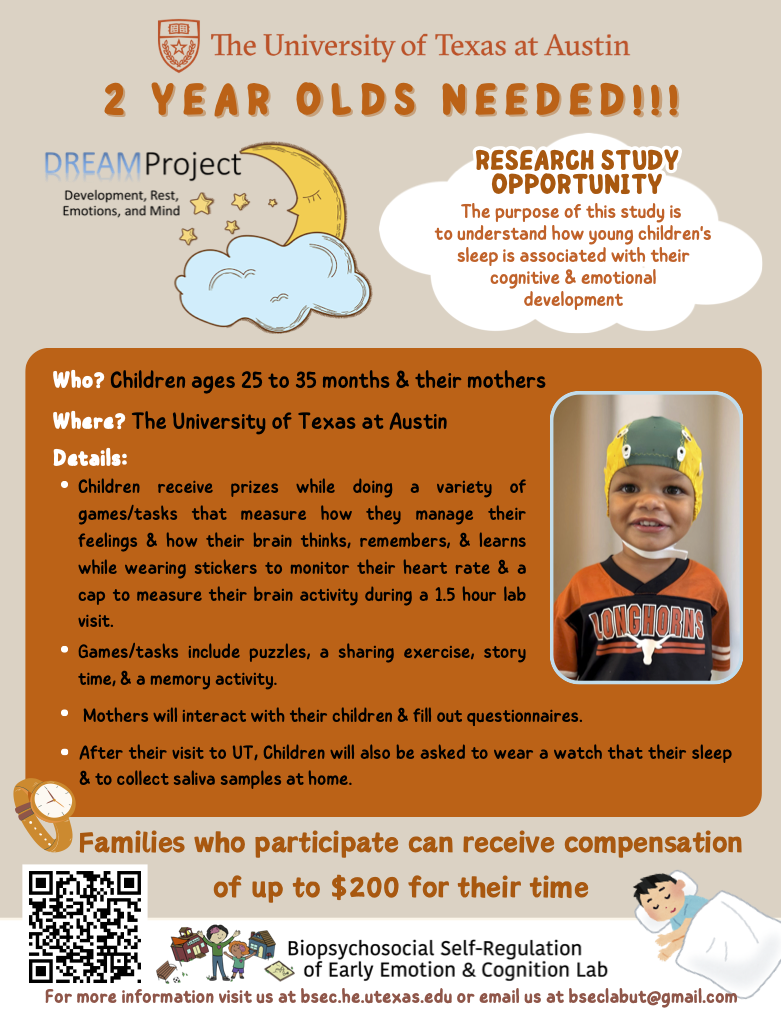The DREAM Project Interest Survey is now open! See bottom of page for survey link!

DREAM Project Pilot
DREAM project summary: Nearly 55% of U.S. children experience some level of sleep deprivation, with the majority of children under age 5 sleeping less than recommended. Moreover, nearly 22% of U.S. children have an emotional or behavioral health condition (Bethell et al., 2022), highlighting a crisis in children’s mental health. The first 5 years of life are characterized by rapid maturation of neural networks that underlie both individual differences in children’s cognitive and emotional development and play a role in sleep behavior and physiology. The DREAM project fills a substantial gap in our current knowledge by propelling an understanding of how young children’s biobehavioral sleep health may serve as a developmental mechanism in the early acquisition of critical cognitive and emotional developmental tasks. We investigate whether young children’s distinct sleep behaviors (e.g., time in bed, bedtime routine), in addition to actual time asleep and the quality of that sleep (i.e. actigraphy measures), predict the development of early biobehavioral emotion regulation and executive function processes. If poor sleep health hinders the development of foundational cognitive and emotional abilities, then the promotion of positive sleep behaviors in early childhood, a relatively low-cost intervention target, may have a considerable return on investment for early academic and social adjustment, and subsequently, lifelong adaptation. This work also significantly improves our understanding of the social and contextual determinants that may explain why young children do not sleep the recommended amount. Study results have translational implications and will be of immediate use to parents, educators, and pediatric services interested in promoting young children’s positive sleep behaviors and bolstering the acquisition of children’s self-regulatory skills.

If you are considering joining The DREAM Project, we have a survey below to help us learn if you and your child are eligible to participate. Completing this survey does not mean you are obligated to participate, but it’s a great way for you to learn more about the project.
↓ ↓ ↓ ↓
